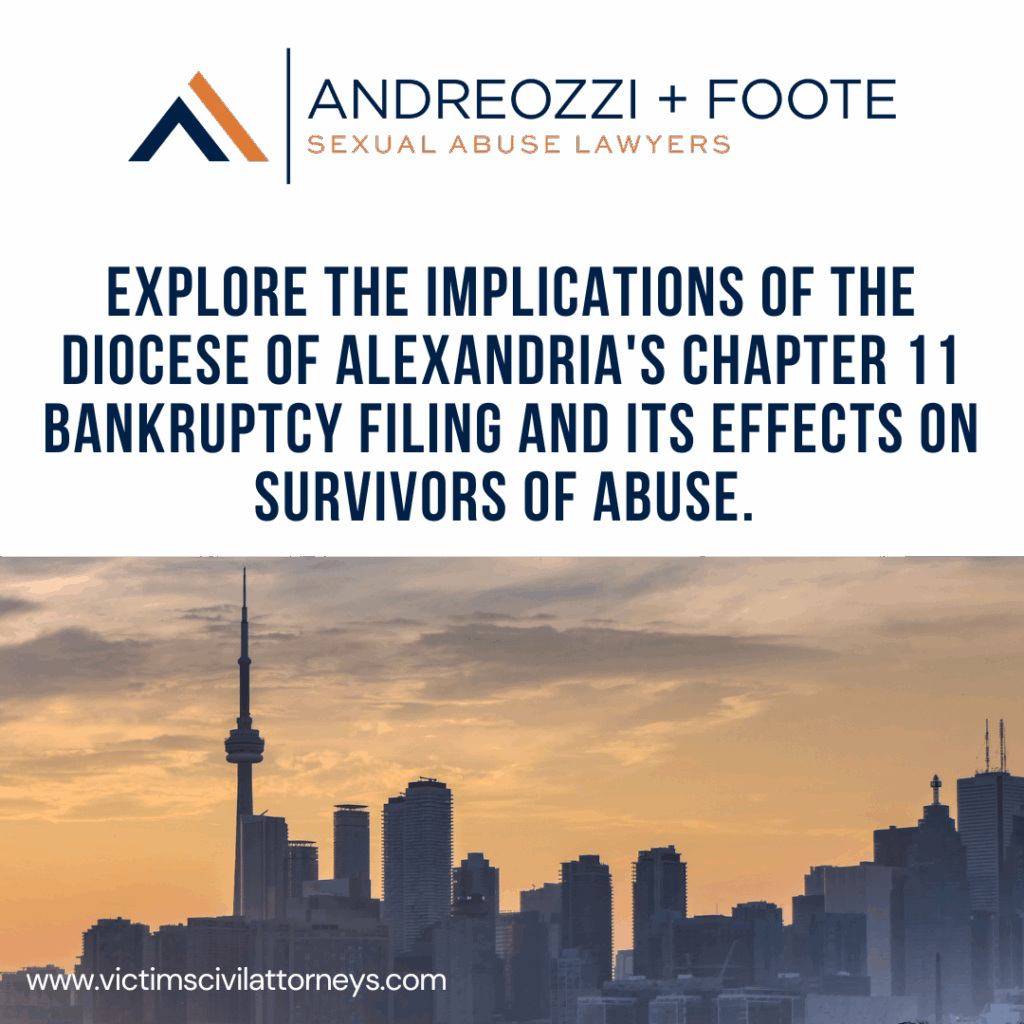A Closer Look at the Diocese of Alexandria Filing
In case you missed it, the Diocese of Alexandria in Louisiana filed for Chapter 11 bankruptcy protection this weekend. For survivors, advocates, and attorneys working in institutional abuse cases, this filing deserves close attention not only for its legal implications but for what it says about transparency, accountability, and justice.
The Financial Picture
The Diocese’s Schedules and Statement of Financial Affairs report roughly $9 million in unrestricted cash, $1.4 million in restricted cash, and $4.7 million in property (likely book value). The filing acknowledges that much of its liabilities stem from thirty-seven lawsuits brought by survivors of sexual abuse. It also lists a $1.65 million secured debt owed to Southern Heritage Bank.
These numbers are slim compared with other diocesan filings. The limited assets underscore a deeper question: will the Diocese approach this process with the urgency and integrity that survivors deserve?
Lost Records and Insurance Reconstruction
An important detail: a 1998 fire at the Diocesan administrative offices destroyed key financial records, insurance policies, and other historical documents. The Diocese has now retained an “insurance archeologist” to piece together what coverage existed.
For survivors, that matters immensely. In many abuse cases, missing records force survivors and their attorneys to reconstruct history on their own to prove what institutions already knew and when they knew it. Insurance recovery often becomes the only meaningful path to compensation, so transparency about coverage must be a top priority.
Why Speed and Strategy Matter
This case is thin: modest assets, limited property, and numerous claims. That makes it even more critical to move quickly and strategically. Every dollar counts, and prolonged proceedings can drain value through administrative costs.
At Andreozzi + Foote, our experience handling cases like the Franciscan Friars’ bankruptcy has shown that these situations demand efficiency, cooperation, and survivor-centered negotiation. When managed properly, insurance recoveries can be maximized while minimizing unnecessary expense.
What Survivors and Counsel Should Do Now
- Connect with Louisiana-based survivor counsel and align strategy early.
- Investigate insurance history even with missing records, archived data and diocesan correspondence may yield coverage clues.
- Watch administrative costs closely so survivor funds are not diluted.
- Push for a transparent global resolution that prioritizes survivor compensation and public accountability.
- Remember that financial settlement alone is not justice; institutional reform must follow.
The Bigger Picture
Bankruptcy does not erase responsibility. It is a tool one that can be used either to obscure or to confront the truth. The Diocese of Alexandria’s filing is a chance to show that accountability and efficiency can coexist, that survivors’ needs come first, and that transparency is non-negotiable.
At Andreozzi + Foote, we stand ready to support survivors, collaborate with local counsel, and ensure this process leads not just to financial resolution, but to healing and reform.
Justice delayed is justice diminished. Let’s move quickly, act ethically, and keep survivors at the center of every decision.


